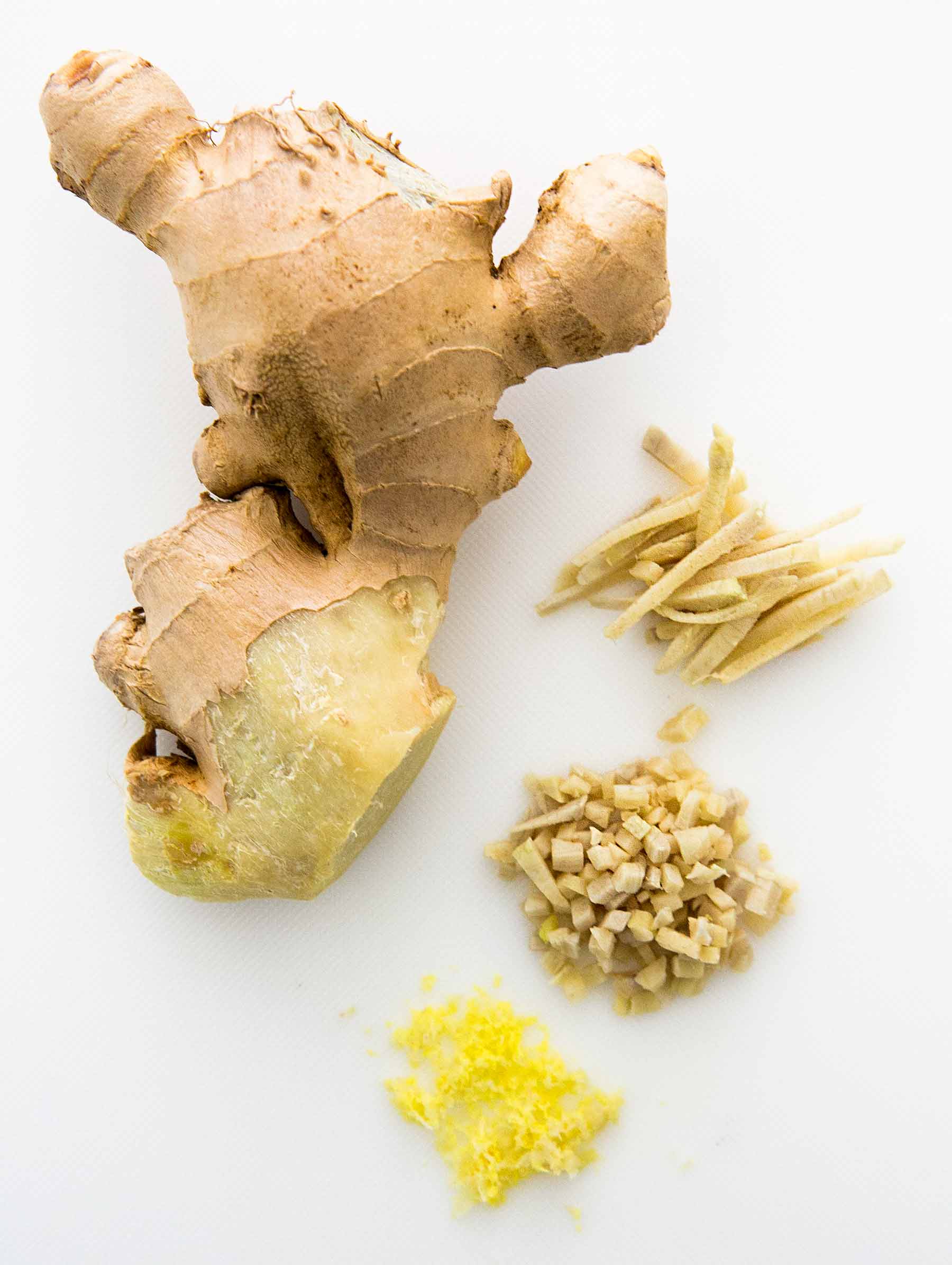Ginger is a medicinal herb that has been used to treat a range of conditions, including rheumatism, arthritis, muscular aches, sprains, sore throats, and parasitic worm infections. The root or rhizome is used in various forms such as dried and powdered, fresh as juice or tea, or even as an oil. Ginger has a strong flavor that enriches the taste of food and is used to season different foods. But, is it safe to eat ginger while breastfeeding?

Can Ginger and Breastfeeding Work Together?
Ginger can certainly go together with breastfeeding. Some studies suggest that ginger enhances breast milk production. Besides, ginger poses no negative effects on the nursing baby. However, you should avoid ginger supplements available in the market until you consult your doctor.
The following are some benefits of ginger when taken during breastfeeding:
1. Get Rid of Nausea
Consumption of ginger is known to help prevent vomiting and morning sickness symptoms; and since nausea is common during lactation, a cup of ginger tea in the morning can give you a calm start to the day.
2. Stimulate Digestion
Because lactating mothers are prone to suffer from bloating, constipation, indigestion and gas, they can get relief by taking ginger when breastfeeding. Ginger also helps improve appetite and increase energy levels.
3. Combat Respiratory Disorders
Consumption of ginger tea can assist in the prevention of respiratory disorders and relief from nasal congestion. It also combats environmental allergies and relieves common cold. These are good reasons to combine ginger and breastfeeding.
4. Lower Inflammation
Ginger has anti-inflammatory properties and, therefore provides relief from muscle pain and severe joint conditions.
5. Improve Blood Circulation
The essential minerals, amino acids, and vitamins contained in ginger tea improve blood flow throughout the body. This supports heart health and guards against strokes and heart attacks.
6. Strengthen Immunity
Ginger has immune boosting properties courtesy of its antioxidant content. Taking ginger helps improve the body's resistance to disease.
7. Reduce Stress
Ginger has a calming effect on the body. It helps reduce stress and levels of the stress hormone, cortisol.
When to Shun Ginger When Breastfeeding
While ginger and breastfeeding is a safe practice for a majority of lactating mothers, it should be avoided in the following cases:
- Consumption of uncooked ginger during early post-delivery stages is forbidden if significant blood loss occurred during childbirth. Intake of raw ginger speeds up hemorrhage risk in breastfeeding mothers.
- Ginger tea can lower the effectiveness of certain medications like those for blood clotting, diabetes or cardiovascular diseases. Therefore, refrain from taking ginger tea when on such medication.
- Ginger should be discontinued if the active ginger elements cause an allergy in the baby, leading to diarrhea, skin rashes or other discomforts.
How to Consume Ginger During Breastfeeding
Having fresh ginger root boiled in a cup of water is one of the easiest methods of consuming ginger during lactation.
- Steep a few slices of chopped raw ginger roots in for 2-3 minutes.
- Drain and serve the tea.
For a more soothing effect, add honey. The following is one example of combining ginger and breastfeeding.
Honey Tea and Ginger Preparation
Ingredients
- 1 tbsp. honey
- Freshly chopped ginger
- Lemon slice
- 1 cup of water
Procedure
- Add a cup of water into a saucepan and place it on the stove.
- Add the freshly chopped ginger.
- Allow the mixture to boil till it turns reddish brown.
- Strain and serve.
- Add some honey and a few drops of lemon juice for a better flavor.
Herbs to Evade While Lactating
Herbs That May Lower Milk Supply
During the lactation phase, you will need to avoid taking some medications, including natural preparations because some of them are known to negatively affect breast milk production. It is safe to use some of these herbs when they are used in preparing meals. However, you should avoid foods prepared using larger amounts of the herbs.
Consuming too much sage, peppermint, menthol cough drops, sage tea (mostly recommended to ladies during weaning) or other tea/foods with large quantities of the specific herb may be unsafe. The herbs listed below are occasionally used by lactating mothers when weaning or when treating milk oversupply. Unless using them for these purposes, avoid them:
- Black walnut
- Spearmint
- Peppermint (Mentha piperita)/Menthol
- Oregano
- Parsley (Petroselinum crispum)
- Herb Robert (Geranium robertianum)
- Lemon Balm
- Vinca Minor - periwinkle herb
- Yarrow
- Salvia officinalis - sage
- Thyme
- Chickweed
- Sorrel (Rumex acetosa)
Herbs That May Cause Harm to Baby and/or Mom
During lactation, you should keep away from certain herbs which may put you or your baby in danger. Following are some of the contraindicated herbs:
- Buckthorn
- Petasites root
- Chaparral
- Rhubarb
- Dong quai (Angelica Root)
- Ephedra / ephedra sinica / Ma Huang
- Elecampane
- Ginseng (panax ginseng)
- Indian snakeroot
- Kava-kava (piper methysticum)
- Coltsfoot
- Phen-fen, herbal
- Wormwood
- Bladderwrack
- Star anise
- Uva Ursi
- Tiratricol (TRIAC)
